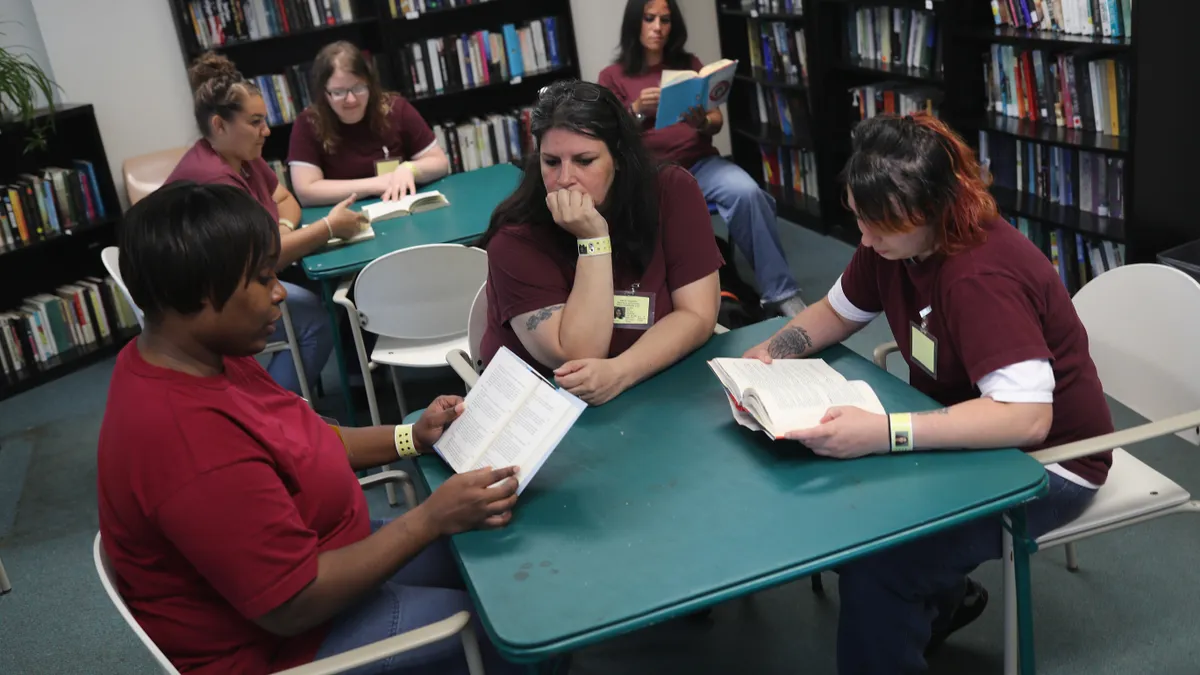Dive Brief:
- The U.S. Department of Education will expand the Second Chance Pell program for the third time in four years, it announced Tuesday as the Biden administration rolled out initiatives to bolster education, job training and reentry plans for people in prison.
- The Ed Department also explicitly said incarcerated individuals who have defaulted on their student loans qualify for a previously announced “fresh start," returning them to a repayment status in good standing. A new program will give them the chance to consolidate their loans and avoid default in the future.
- The Second Chance Pell program gives incarcerated people the opportunity to receive federal Pell Grants and pursue an education prior to their release. The latest expansion adds 73 colleges, putting the total number of institutions able to participate in the program at 200. Selected colleges can access the grants as early as July.
Dive Insight:
The Second Chance Pell program aims to keep people from returning to prison once their sentences are complete by providing educational opportunities during incarceration. Inmates who participated in correctional education programs were 48% less likely to return to prison than those who didn't, according to the Vera Institute of Justice.
Since the Second Chance Pell program began in 2015, participants have earned over 7,000 credentials, according to the Ed Department. The latest expansion is intended to serve as a lead-up to July 2023, when the Department of Education plans to comply with Congressional action rolling back a 1994 law that prevented prison inmates from receiving Pell aid. The reversal will allow all students in college-in-prison programs to apply for Pell Grants outside of the Second Chance Pell program.
The Second Chance Pell program has received bipartisan support since its inception under the Obama administration. In 2019, President Donald Trump's education secretary, Betsy DeVos, doubled the maximum number of participating institutions. The Biden White House expanded the program a second time in 2021. Its latest action does so again as part of an administration plan to aid formerly incarcerated people in finding employment after they're released.
A majority of the participating colleges are public two- and four-year institutions. Almost a third of the new 73 participants are historically Black colleges and minority-serving institutions.
The Department of Education also announced an expansion of Second Chance Pell eligibility by allowing incarcerated people a fresh start on any defaulted student loans. Defaulted loans disqualify people from receiving federal financial aid, and incarcerated individuals were twice as likely as the greater population to be denied aid because of them, according to the Ed Department. Incarcerated individuals will additionally be able to consolidate their loans, an option that was already available to people outside the prison system.
The White House also announced partnerships between the departments of Justice, Labor and Education. The Justice and Labor departments will spend $145 million to create individualized employment and reentry plans for people incarcerated in federal prisons, along with job training resources. Additionally, one of the Justice Department's Second Chance Fellows, which are formerly incarcerated people who help develop reentry policy, will work directly with the Ed Department on educational policy for incarcerated people, both before and after their release.














